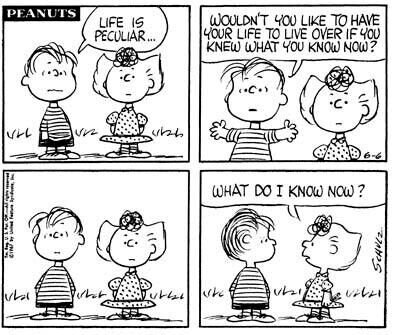Answering before listening or hearing
Let's consider Proverbs 18:13 from what some call "The Good Book", "God's Word", aka the Bible.
He that answers a matter before he hears it, it is folly and shame to him.
(Forget the patriarchal "he" and assume this also applies to the female of the species......😀)
What is the full depth of this little proverb, this pearl of wisdom? Many insist that the Bible has ALL the answers, that its full depth is virtually unplumbable. This being so, the key word in this Proverb would be "hear". What is it to truly hear a matter?
To hear what a Faith is saying, what life means - in fact, what anything means, is, can be, will be. To truly hear another human being - this before we judge them, put them into a category, dismiss them as of no consequence?
Someone once said that the only extension to the present is intensity. Depth. The present moment is the only moment and yet there is - as the zen master Dogen claimed - a "movement toward Buddha". An ever growing intimacy with the Reality around us.
It seems to me that many reach conclusions, even come to final conclusions. Yet what have they truly heard? Movement has stopped.
Confucius said, “To know what you know and what you do not know, that is true knowledge"
That too is a deep saying. Profound. And if any here simply think "well, his words are not Biblical, therefore I will not reflect upon them" then my post here has been in vain.....😀
He that answers a matter before he hears it, it is folly and shame to him.
(Forget the patriarchal "he" and assume this also applies to the female of the species......😀)
What is the full depth of this little proverb, this pearl of wisdom? Many insist that the Bible has ALL the answers, that its full depth is virtually unplumbable. This being so, the key word in this Proverb would be "hear". What is it to truly hear a matter?
To hear what a Faith is saying, what life means - in fact, what anything means, is, can be, will be. To truly hear another human being - this before we judge them, put them into a category, dismiss them as of no consequence?
Someone once said that the only extension to the present is intensity. Depth. The present moment is the only moment and yet there is - as the zen master Dogen claimed - a "movement toward Buddha". An ever growing intimacy with the Reality around us.
It seems to me that many reach conclusions, even come to final conclusions. Yet what have they truly heard? Movement has stopped.
Confucius said, “To know what you know and what you do not know, that is true knowledge"
That too is a deep saying. Profound. And if any here simply think "well, his words are not Biblical, therefore I will not reflect upon them" then my post here has been in vain.....😀




